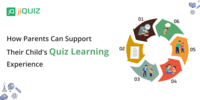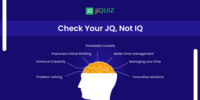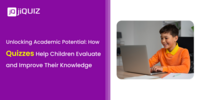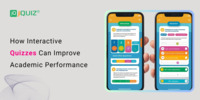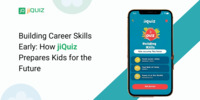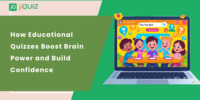- Jun 20, 2025
- Career & Skills
- 420
Share this post on:
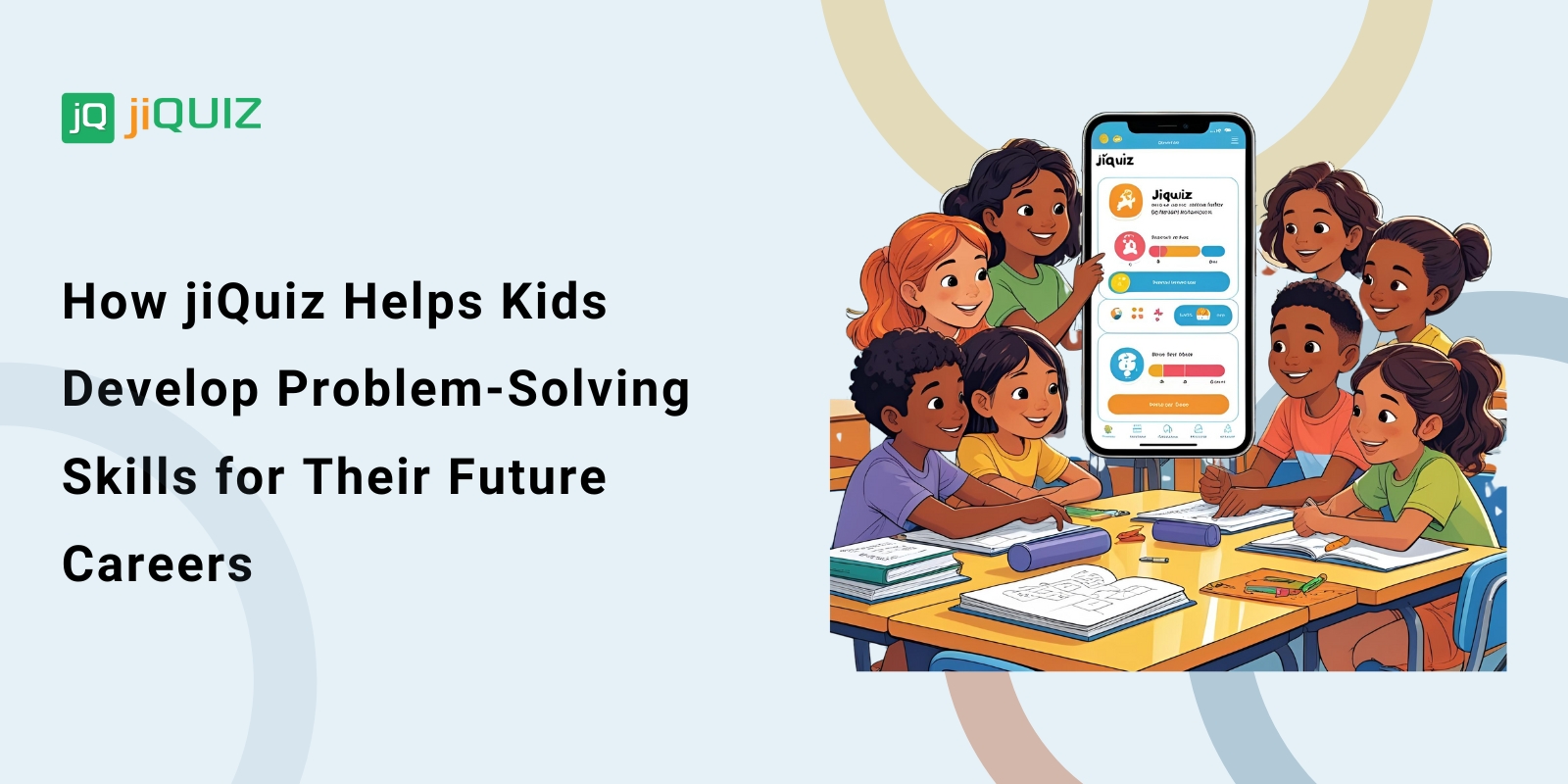
The future of work is changing. Automation, artificial intelligence, and globalization are reshaping industries at an unprecedented pace. While technical skills remain important, the ability to think critically, solve problems creatively, and adapt to new challenges is becoming essential for success. Are we, as parents and educators, adequately preparing our children for this future? Traditional education often focuses on memorization and standardized tests, leaving crucial problem-solving skills underdeveloped. That's where innovative tools like jiQuiz are stepping in, offering a fun and engaging way to nurture these vital capabilities.
The Problem: Why Problem-Solving Skills are Critical (and Often Missing)
For decades, education has, to a large degree, prioritized recalling information. While a foundation of knowledge is necessary, simply knowing what something is isn't enough. Tomorrow's workforce needs individuals who can ask why, how, and what if? Here's why problem-solving skills are so vital for future career success:
- Adaptability: The jobs of the future may not even exist yet. Individuals who can analyze situations, identify challenges, and devise solutions will be better equipped to navigate uncertainty.
- Innovation: New ideas and breakthroughs come from those who can look at existing processes and identify ways to improve them. Problem-solving fosters creativity and innovation.
- Collaboration: Most careers involve working in teams. Problem-solving requires effective communication, active listening, and the ability to contribute constructively to group efforts.
- Decision-Making: From entry-level positions to leadership roles, making informed decisions is critical. Problem-solving provides the framework for evaluating options and choosing the best course of action.
- Resilience: Facing challenges is inevitable. Problem-solving teaches children to persevere, learn from failures, and view setbacks as opportunities for growth.
The skills gap between what employers need and what graduates possess is a growing concern. Focusing on problem-solving early on is a proactive step towards closing that gap.
Introducing jiQuiz: Gamified Learning for Critical Thinkers
jiQuiz isn’t just another educational game. It's a platform designed to actively engage children in problem-solving scenarios. The platform leverages the power of gamification – the use of game-design elements and game principles in non-game contexts – to make learning enjoyable and effective. Let’s explore how jiQuiz tackles problem-solving development:
- Scenario-Based Learning: Unlike traditional quizzes that focus on rote memorization, jiQuiz presents children with real-world scenarios that require them to analyze situations, identify obstacles, and develop solutions. Imagine a scenario where a child has to manage a virtual lemonade stand and deal with issues like ingredient shortages or unexpected weather. This encourages them to think on their feet.
- Branching Narratives: The platform utilizes branching narratives, meaning the story unfolds based on the child’s choices and actions. This creates a sense of agency and allows children to experience the consequences of their decisions.
- Multiple Solution Paths: jiQuiz avoids the "one right answer" mentality. It encourages exploration and rewards creativity by offering multiple pathways to solve each challenge. This fosters a growth mindset and encourages children to think outside the box.
- Feedback and Reflection: The platform provides immediate feedback on children’s choices, explaining the rationale behind each outcome. This allows them to learn from their mistakes and refine their problem-solving strategies.
- Age-Appropriate Challenges: jiQuiz offers a wide range of challenges tailored to different age groups and skill levels, ensuring that children are appropriately challenged and engaged. From basic logical reasoning for younger children to complex strategic thinking for older ones, there's something for everyone.
- Subject Integration: Problem-solving isn't isolated to math or science. jiQuiz integrates problem-solving challenges into various subjects, including language arts, social studies, and even art, demonstrating its applicability across the curriculum.
How jiQuiz Builds Specific Problem-Solving Skills
Let’s break down the specific skills that jiQuiz cultivates and how it does so:
- Analytical Thinking: The scenarios require children to break down complex problems into smaller, manageable components. For instance, a challenge might involve diagnosing a malfunctioning robot – the child must analyze its parts and identify the source of the issue.
- Logical Reasoning: jiQuiz presents children with puzzles and riddles that require them to use deductive and inductive reasoning to arrive at solutions.
- Creative Thinking: Many challenges require children to think outside the box and come up with innovative solutions. There’s an emphasis on “what if” thinking and exploring unconventional approaches.
- Decision-Making Under Pressure: Some scenarios introduce time constraints and unexpected events, forcing children to make quick decisions with limited information.
- Resource Management: Several challenges involve managing limited resources, such as money, time, or materials, requiring children to prioritize and make strategic choices.
- Collaboration (in group modes): Some jiQuiz modes allow for collaborative problem-solving, encouraging children to communicate, negotiate, and work together to achieve a common goal.
Benefits Beyond Academics: How Problem-Solving Skills Impact Future Careers
The impact of strong problem-solving skills extends far beyond the classroom. Here’s how it can positively influence a child’s future career:
- Entrepreneurship: Starting a business requires tackling countless challenges. Problem-solving skills are essential for identifying opportunities, developing business plans, and overcoming obstacles.
- STEM Fields: Science, Technology, Engineering, and Mathematics (STEM) careers are heavily reliant on critical thinking and problem-solving abilities.
- Healthcare: Healthcare professionals constantly face complex medical cases that require them to analyze symptoms, diagnose illnesses, and develop treatment plans.
- Finance: Financial analysts need to be able to analyze market trends, assess risks, and make informed investment decisions.
- Arts and Design: Even creative fields benefit from problem-solving skills. Designers must solve design challenges, artists must overcome creative blocks, and musicians must find innovative ways to express themselves.
- Leadership Roles: Effective leaders are problem-solvers. They identify challenges, develop strategies, and inspire teams to achieve goals.
Integrating jiQuiz into a Holistic Approach to Learning
While jiQuiz is a powerful tool, it’s most effective when integrated into a broader approach to learning. Here are some suggestions:
- Encourage Open-Ended Play: Provide children with opportunities to engage in unstructured play, which allows them to experiment, take risks, and learn from their mistakes.
- Ask Open-Ended Questions: Instead of asking questions with simple "yes" or "no" answers, ask open-ended questions that encourage children to explain their thinking and justify their reasoning.
- Model Problem-Solving: When faced with challenges, model your own problem-solving process, demonstrating how to analyze situations, generate solutions, and learn from failures.
- Celebrate Effort and Perseverance: Focus on the effort and perseverance that children put into solving problems, rather than just the outcome.
- Connect Learning to Real-World Experiences: Help children connect what they learn in school and through platforms like jiQuiz to real-world situations.
Conclusion: Investing in Future-Ready Skills
In a rapidly changing world, equipping children with strong problem-solving skills is an investment in their future. jiQuiz offers a fun, engaging, and effective way to cultivate these vital capabilities. By integrating this platform into a holistic approach to learning, parents and educators can empower children to become adaptable, innovative, and resilient individuals, ready to thrive in the careers of tomorrow. It’s not just about preparing them for a job; it's about preparing them for a future filled with possibilities.

